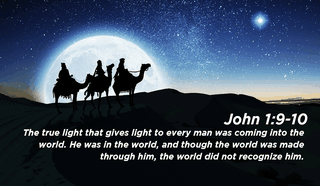
Change Translation
- Recent Translations
- All Translations
John 1:17
Share
Listen to John 1:17
Settings
Scripture Text Size
17
For the law was given by Moses: grace and truth subsists [a] through Jesus Christ.
John 1:17 In-Context
15
(John bears witness of him, and he has cried, saying, This was he of whom I said, He that comes after me is preferred before me, for he was before me;)
16
for of his fulness we all have received, and grace upon grace.
17
For the law was given by Moses: grace and truth subsists through Jesus Christ.
18
No one has seen God at any time; the only-begotten Son, who is in the bosom of the Father, *he* hath declared [him].
19
And this is the witness of John, when the Jews sent from Jerusalem priests and Levites that they might ask him, Thou, who art thou?
Related Articles
Footnotes 1
- [a] Ginomai, 'has come,' that which, not having actually been in being before (i.e. in the world), now begins to be so. So the Word was (v. 1), but everything else 'began to be.' The world 'had its being,' 'began to be,' through Him (v. 10). He 'became flesh' (v. 14), ginomai. So 'grace and truth came into being.' I am not satisfied with 'subsists,' but 'came' gives the idea of coming into the world. No doubt they did so, but the word has not this force. They began to exist de facto down here. The verb is singular, and 'grace and truth' go together in the person of Christ. Nothing subsisted by the law, it was a rule given; but grace and truth actually commenced to be, not in God's mind of course, but in revelation and actual existence down here. But its so taking place supposes its continuance.
The Darby Translation is in the public domain.


